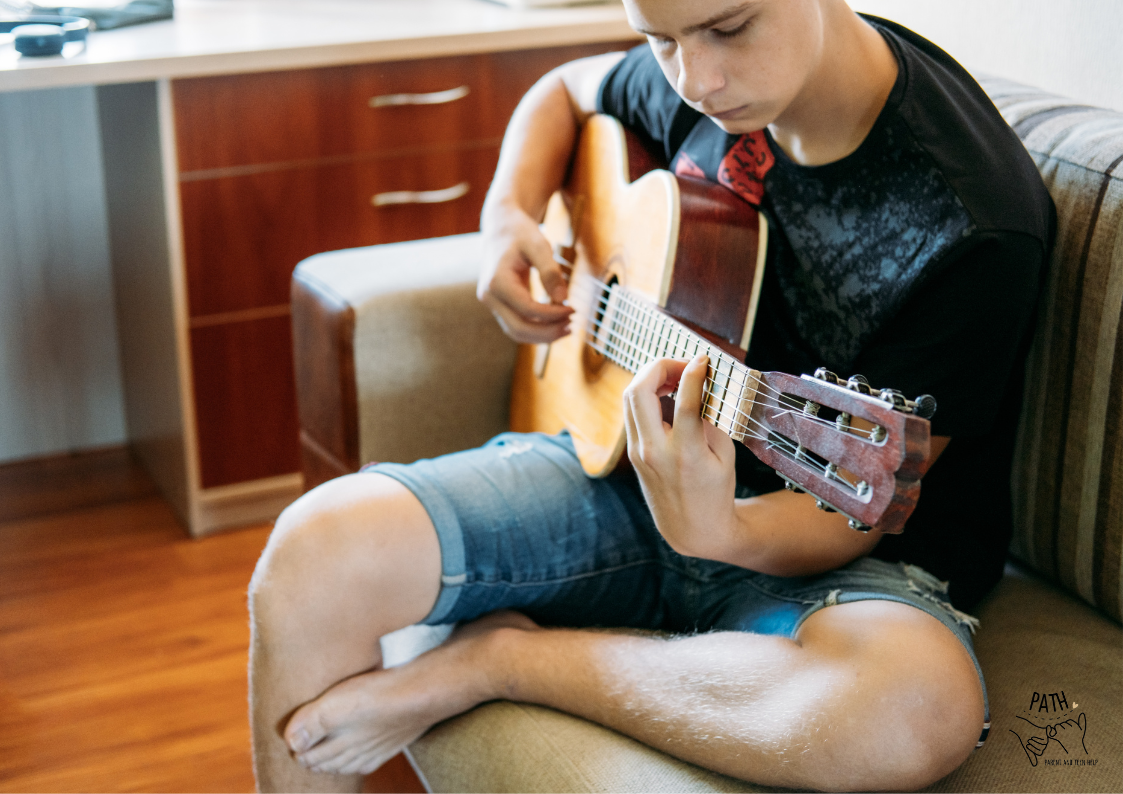Helping Your Teen Manage Anxiety: A Parent’s Guide
Mar 18, 2025
"Mum, I just can't do it. My stomach hurts too much."
Emma’s 14-year-old son, Jake, had always been a confident child. But over the last year, she noticed a shift. He started avoiding school, snapping at small things, and complaining of headaches. At first, she thought it was just "teen mood swings"—until one morning, he refused to leave the house. Anxiety had taken over.
If you’re reading this, you might be facing a similar situation. Maybe your teen is avoiding social situations, struggling with school pressure, or having unexplained meltdowns. You are not alone. Anxiety is one of the most common challenges teens face today, but with the right tools, they can learn to manage it—and you can help.
Here are nine ways you can provide practical, evidence-based support while strengthening your relationship with your teen.
1. Strengthen Communication & Emotional Safety
Why it matters: Teens with anxiety often bottle up their feelings, fearing they won’t be understood. Creating a safe space where they feel heard can significantly lower their stress levels.
✅ Listen Without Jumping to Fix – Sometimes, your teen just needs to be heard. Try:
"I hear you. That sounds really tough." rather than "It’s not a big deal, just ignore it."
✅ Validate Their Feelings – Replace “You’re overreacting” with “I can see this is really stressing you. Let’s figure it out together.”
✅ Avoid Minimising Their Experience – Even if their worries seem small, they feel very real to them.
2. Teach Healthy Coping Strategies
Why it matters: Anxiety often comes with physical symptoms—racing heart, sweating, dizziness. Teaching your teen simple coping tools can help them manage these moments.
✅ Breathing Techniques – The 4-7-8 method (inhale for 4 seconds, hold for 7, exhale for 8) activates the body’s relaxation response.
✅ Grounding Exercises – The 5-4-3-2-1 method (name 5 things they see, 4 they touch, 3 they hear, 2 they smell, and 1 they taste) can help pull them out of anxious thoughts.
✅ Encourage Movement – Physical activity releases endorphins, which are natural stress relievers.
3. Reframe Negative Thinking
Anxiety often makes teens assume the worst.
✅ Encourage Positive Self-Talk – Replace “I’ll fail” with “I’ve studied, and I’ll do my best.”
✅ Challenge Worst-Case Scenarios – Ask: “What’s the worst that could happen? And if it did, what would you do?”
✅ Introduce “Worry Time” – Set aside 10 minutes a day to write down worries, helping your teen control when and how they think about them.
4. Reduce Academic Pressure & Perfectionism
Many anxious teens struggle with perfectionism and school stress.
✅ Help them prioritise tasks – Use a realistic schedule instead of overwhelming to-do lists.
✅ Encourage effort over perfection – Praise progress rather than just results: “I’m proud of how hard you worked on this.”
✅ Let them take breaks – Overstudying can increase anxiety rather than improve performance.
5. Manage Social Anxiety & Peer Pressure
Teenagers worry about how they are perceived by their peers.
✅ Practice social scenarios together – Role-play situations like starting conversations, handling conflict, or saying no to peer pressure.
✅ Normalise feeling awkward – Remind them that everyone feels self-conscious sometimes.
✅ Encourage small social steps – If big social events feel overwhelming, start with low-pressure interactions like texting a friend or attending part of an event.
6. Create a Supportive Home Environment
A stable home environment can provide a foundation for managing anxiety.
✅ Establish routines – A predictable daily schedule reduces uncertainty and stress.
✅ Minimise household tension – If home is a place of constant conflict, anxiety will increase.
✅ Model calm behaviour – Show your teen how to handle stress in a healthy way.
7. Limit Anxiety Triggers (Social Media, News, Sleep Deprivation)
✅ Encourage Digital Detoxing – Social media comparison fuels anxiety. Set healthy screen time limits.
✅ Reduce News Overload – If your teen gets anxious about global events, help them take breaks from distressing news.
✅ Improve Sleep Habits – Lack of sleep worsens anxiety. Try a tech-free wind-down routine before bed.
8. Encourage Professional Support If Needed
If anxiety is affecting your teen’s daily life, school attendance, or relationships, it may be time to seek professional support.
✅ Therapy can help – Cognitive Behavioural Therapy (CBT) is a highly effective approach for anxiety.
✅ Check school mental health services – Many schools offer counsellors or pastoral support.
✅ Speak to a GP if needed – Your doctor can provide guidance on further support options.
9. Encourage Hobbies & Relaxation
Engaging in activities they enjoy can help reduce anxiety.
✅ Creative outlets like art, journaling, and music help teens process emotions.
✅ Mindfulness apps like Calm or Headspace can aid relaxation.
✅ Let them take breaks without guilt – Teens need time to unwind without feeling pressured to be productive.
You Are Not Alone
Parenting a teenager with anxiety can feel overwhelming, but you don’t have to navigate this alone. With the right strategies, your teen can learn to manage their anxiety—and you can be their biggest support.










